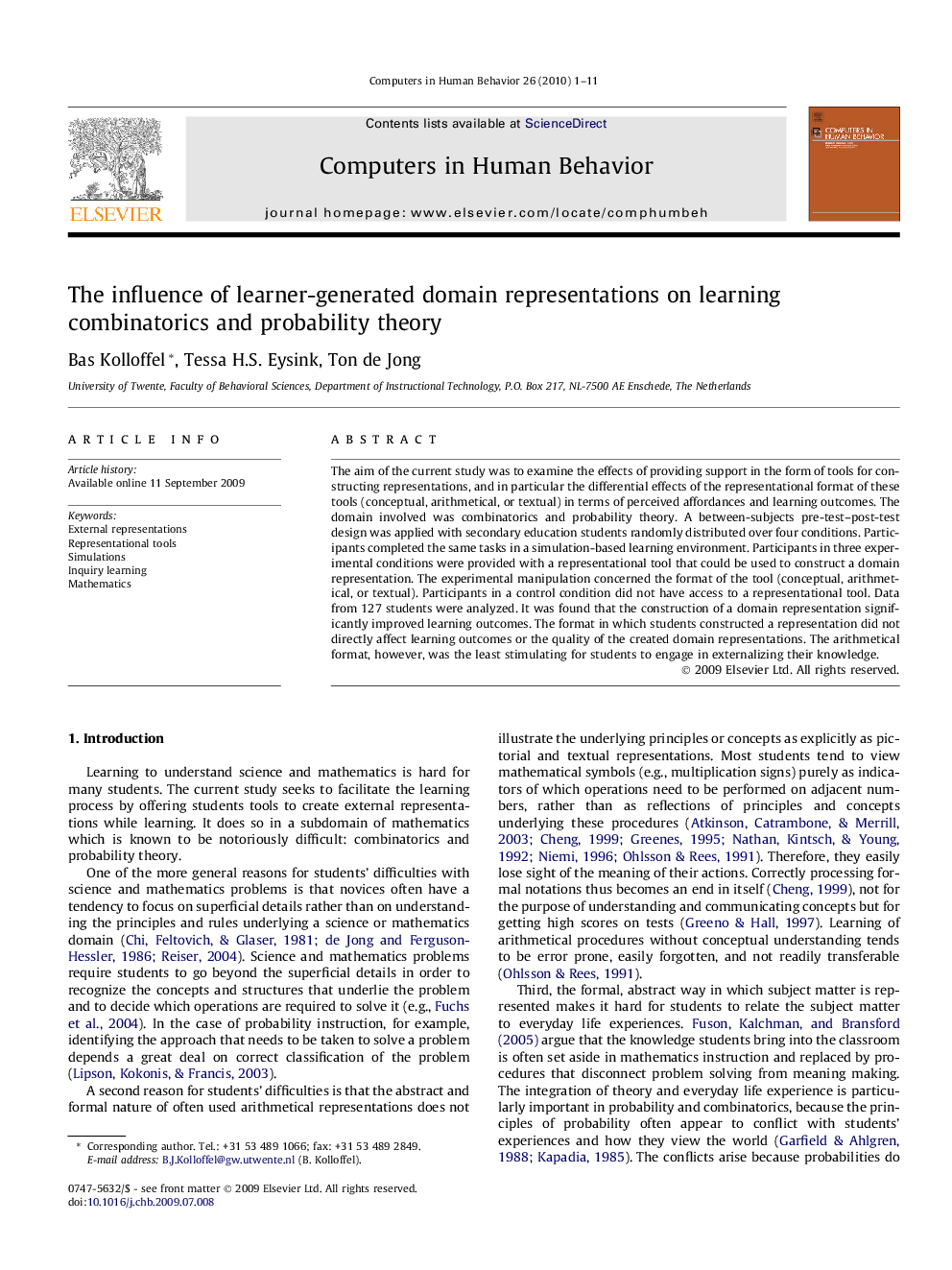| Article ID | Journal | Published Year | Pages | File Type |
|---|---|---|---|---|
| 352194 | Computers in Human Behavior | 2010 | 11 Pages |
The aim of the current study was to examine the effects of providing support in the form of tools for constructing representations, and in particular the differential effects of the representational format of these tools (conceptual, arithmetical, or textual) in terms of perceived affordances and learning outcomes. The domain involved was combinatorics and probability theory. A between-subjects pre-test–post-test design was applied with secondary education students randomly distributed over four conditions. Participants completed the same tasks in a simulation-based learning environment. Participants in three experimental conditions were provided with a representational tool that could be used to construct a domain representation. The experimental manipulation concerned the format of the tool (conceptual, arithmetical, or textual). Participants in a control condition did not have access to a representational tool. Data from 127 students were analyzed. It was found that the construction of a domain representation significantly improved learning outcomes. The format in which students constructed a representation did not directly affect learning outcomes or the quality of the created domain representations. The arithmetical format, however, was the least stimulating for students to engage in externalizing their knowledge.
